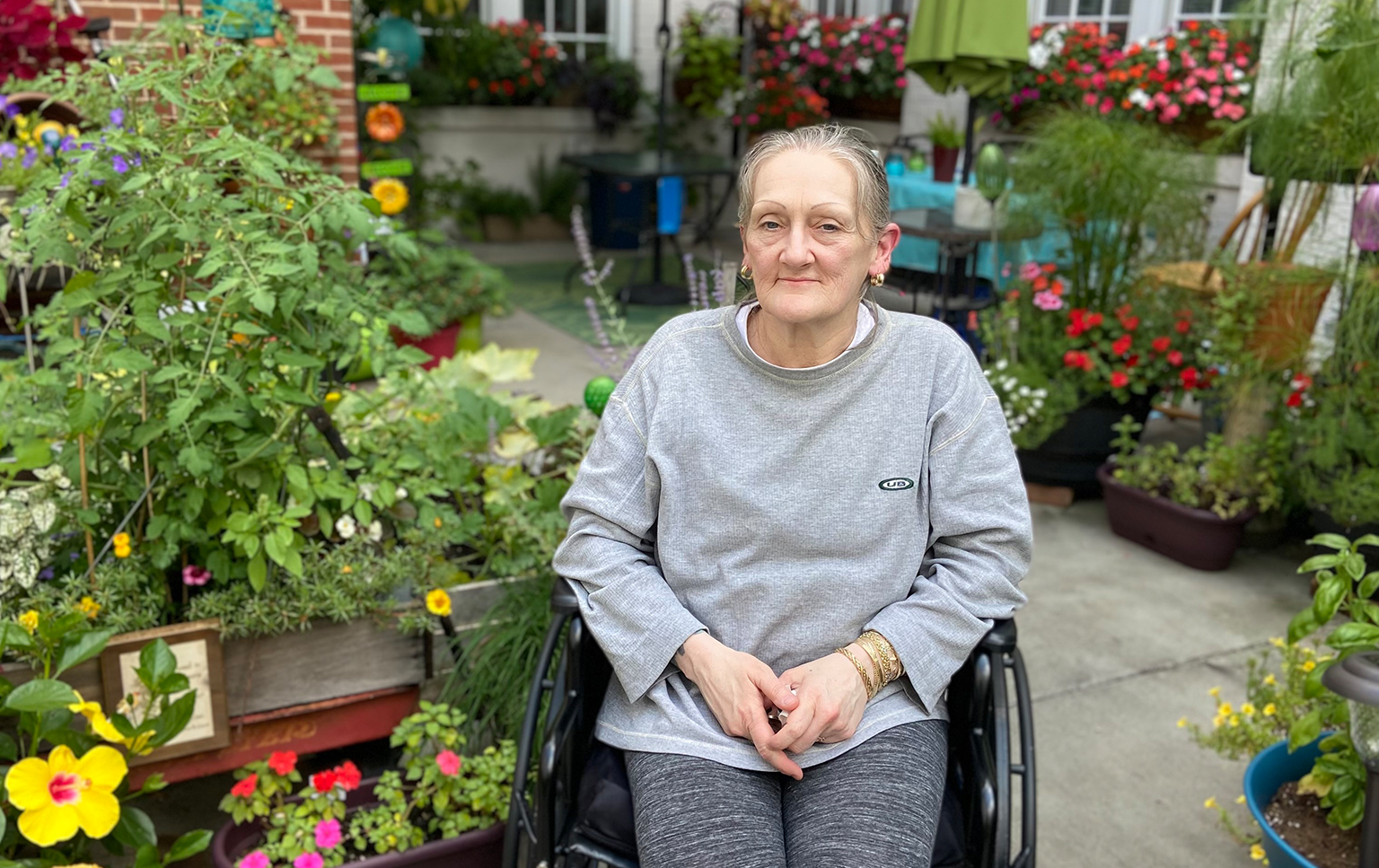More than 1 in 5 American adults experience chronic pain (Yong et al., 2021), and unfortunately Andrea is one of them. For years she dealt with pain brought on by scoliosis, osteoporosis, and psoriatic arthritis. To make matters worse, she was unable to take medication for the psoriatic arthritis due to previous medical issues. Understandably, being in constant pain led Andrea to fall into a deep depression that also turned into anorexia. She lost weight rapidly, felt hopeless, and even stopped seeing her doctors. Andrea eventually agreed with her daughter and doctor that living in a nursing facility would allow her the attention, encouragement and time she needed to save her life.
The move happened on January 10th, 2018, and Andrea remembers it like it was yesterday. She mostly kept to herself as she was still depressed and lacked the motivation to socialize. The loss of independence and privacy was hard to get used to, as was the fact that she could never truly find peace and quiet. Down the road when the pandemic started, she felt more isolated than ever. For her own safety and others, she had to quarantine in her room most days and had very limited social interactions.
Eventually, Andrea began to make friends and even became close with a few special staff members. While working with a dietician, she started to work on her battle with anorexia. She was so thankful for her daughter and staff who would bring her home made meals, which she found easier to eat than the facility food. When Andrea was asked what inspired her to get better, she credited a very special man she had met while living there. Although she never anticipated it, he encouraged and inspired her, reminding her why getting healthy was worth it. He wanted her to be able to leave the nursing home and live the way she wanted to, something his health would not allow him to do.
Andrea did just that. She continued eating, getting stronger, and working on her mental health. One day the facility social worker introduced Andrea to the Money Follows the Person (MFP) program, a program that would provide her the assistance she needed to live in the community once again. She was excited and relieved to know she had options, and that MFP staff would be there to help her every step of the way. Her housing coordinator found her a beautiful, accessible apartment in a secure building. Andrea also started receiving personal care assistance (PCA) services 4 hours a day, to help with daily activities. Her PCA helps with cleaning and laundry, cooking, and transportation. Andrea is so grateful for this help, and sees her PCA as much more than just someone that helps her. “She goes above and beyond for me and is a great friend.”
Andrea described how life is different now. “I get to feed the birds and do what I want. I have a view of the courtyard from my apartment. It’s a nice place to sit and enjoy the fresh air, and it’s covered with beautiful flowers and garden plants.” Now in her own home, she is even considering getting a pet, something she could never do in the nursing home. Although Andrea still deals with pain and mental health, she describes herself as having a new will for life, which she certainly does not take for granted.

